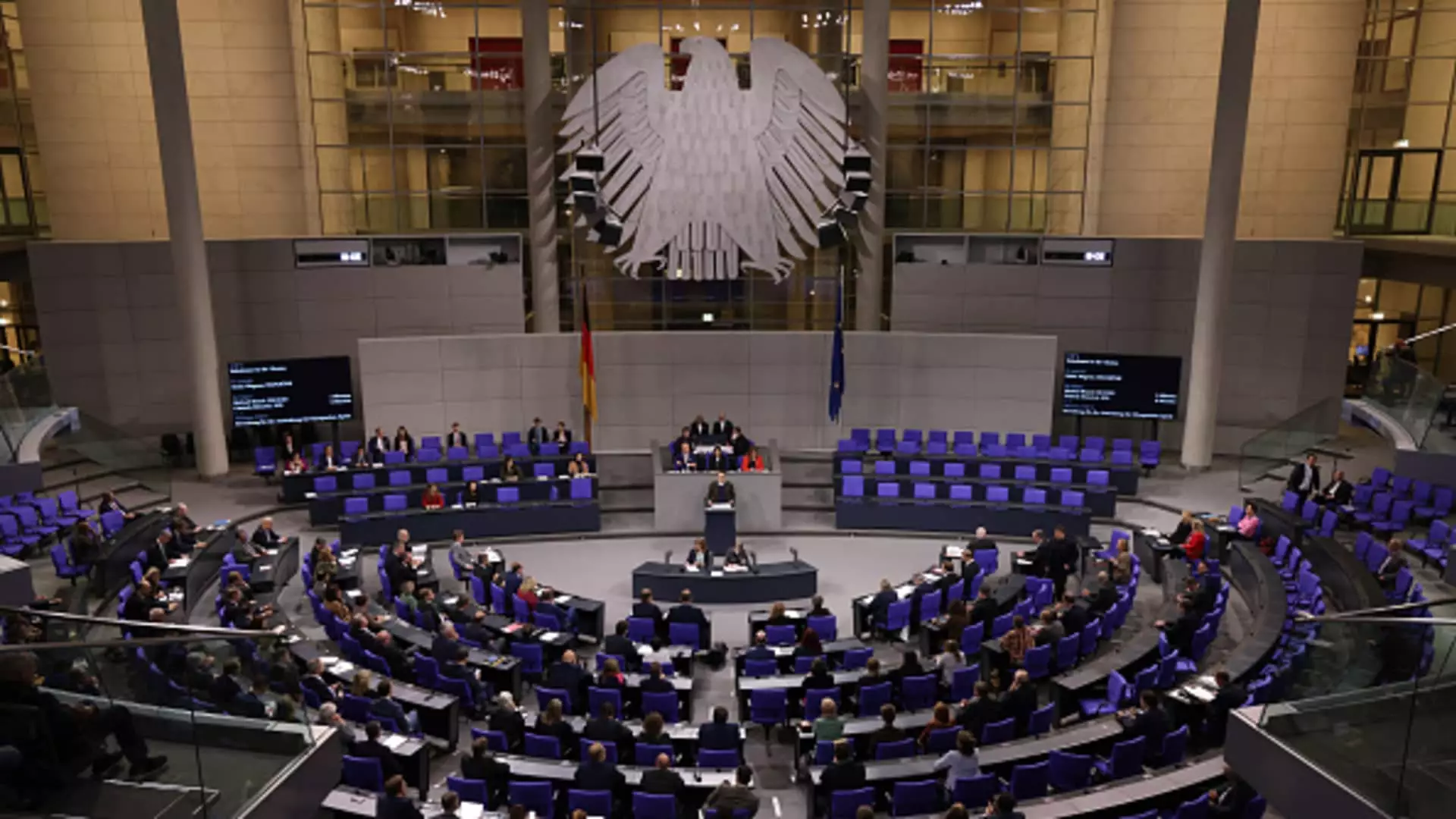In a significant political development, President Frank-Walter Steinmeier announced the dissolution of Germany’s lower house of parliament, setting the stage for unexpected elections scheduled for February 23. This decision comes on the heels of a turbulent political climate following the disintegration of Chancellor Olaf Scholz’s three-party coalition. Steinmeier emphasized the urgent need for a government capable of decisive action in challenging times, marking early elections as the essential path forward for Germany. His remarks reflect a profound concern for the stability of governance within the nation, indicating that the political apparatus must be reinvigorated to address pressing societal issues.
In his statement, Steinmeier stressed the importance of putting problem-solving back at the forefront of political discussions. This sentiment highlights a growing frustration among the electorate regarding the inability of current leaders to deliver effective solutions. His call for an election campaign characterized by fairness and transparency resonates with the public’s desire for accountability in governance. Steinmeier warned against external influences, underscoring the risks posed to democracy from both covert and overt tactics aimed at swaying public opinion—pointing to the recent Romanian electoral incidents as a cautionary tale. His insistence on maintaining democratic integrity is a vital reminder of the dangers that accompany political manipulation, particularly in an age defined by pervasive social media influence.
Chancellor Olaf Scholz finds himself leading a caretaker government amidst growing political challenges, following a no-confidence vote that shattered his coalition. His administration, once a coalition of several parties, is now at a precipice, with various political analysts suggesting that conservative challenger Friedrich Merz is poised for a significant breakthrough. His critiques of the Scholz administration’s heavy regulatory frameworks resonate with a populace eager for economic revitalization and growth. With polling data suggesting a solid lead for the conservatives over the Social Democrats, the evolving political landscape underscores a potential shift in governance priorities.
Notably, the inclusion of the far-right Alternative for Germany (AfD) in the political discourse presents an intricate dilemma for traditional parties. While mainstay political factions have largely shunned the idea of collaborating with the AfD, their rising popularity complicates coalition negotiations. The increasing visibility of the AfD indicates a fractious public sentiment that could reshape parliamentary alliances in the future. Should new factions continue to gain ground, the potential for unstable coalitions increases, demanding an agile approach to political strategy from all major parties.
As Germany approaches these crucial snap elections, the implications of voter decisions will extend beyond mere party lines—they will determine the country’s direction in both domestic governance and its role in European politics. The upcoming electoral battle represents more than just a contest for power; it is, at its core, a choice about the fundamental values that will guide Germany’s future. Ensuring stability and integrity in governance will be paramount, with the expectation that any new coalition will prioritize effective solutions for the pressing challenges that lie ahead.

Leave a Reply